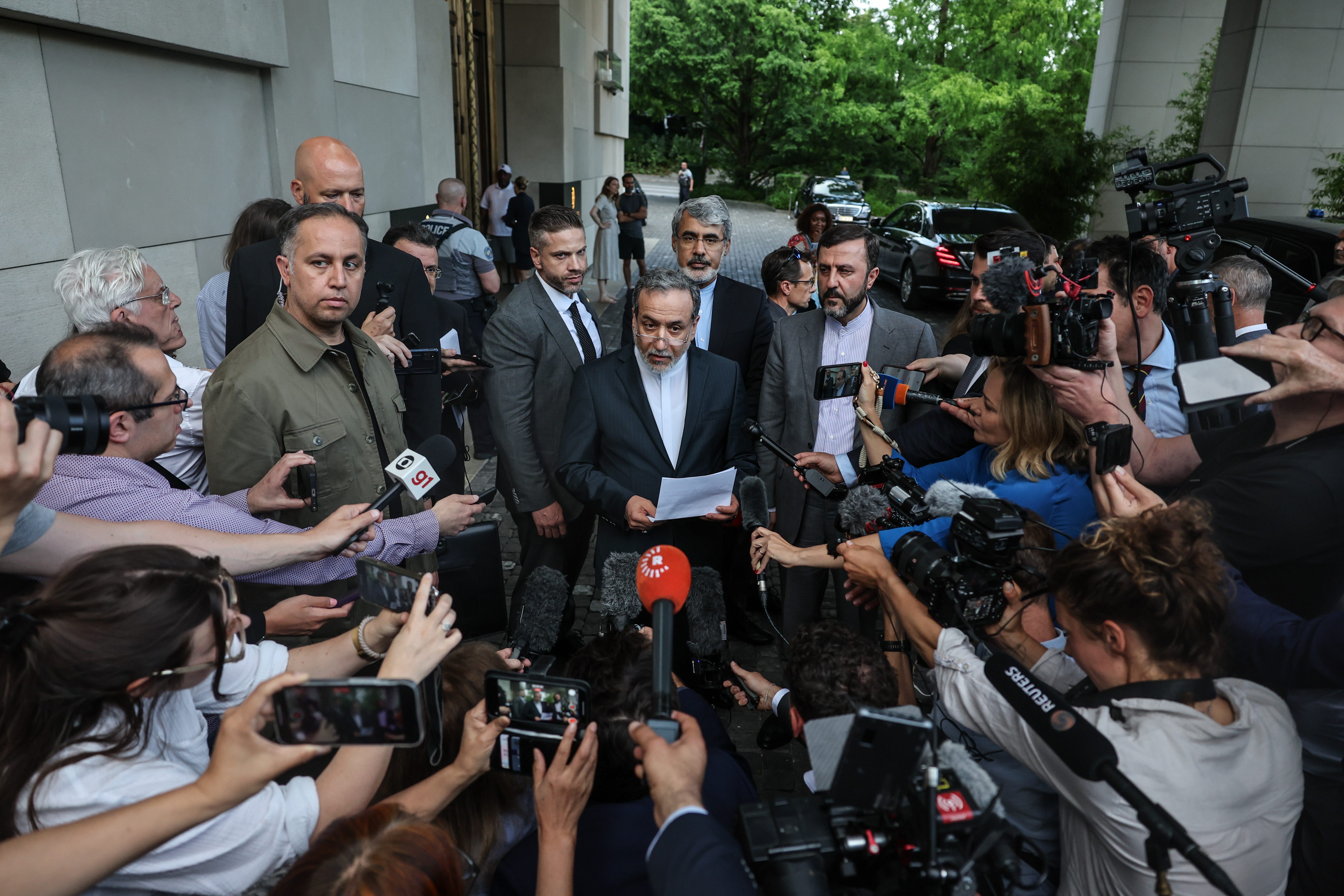 The U.S. and Iran are headed to a new round of talks in Geneva aimed at averting a conflict this week—as the U.S. continues to surge military forces to the region in its largest military buildup since the 2003 invasion of Iraq.
The U.S. and Iran are headed to a new round of talks in Geneva aimed at averting a conflict this week—as the U.S. continues to surge military forces to the region in its largest military buildup since the 2003 invasion of Iraq.
Although talks are scheduled for Thursday, the prospects for a deal that would halt the U.S. drive to war remain fragile. The U.S. has demanded sweeping concessions, including the cessation of all nuclear enrichment on Iranian soil, the end of Iranian support for regional armed resistance movements, and strict limits on the Iranian ballistic missile program—the only meaningful deterrent that Iran was able to employ during its conflict with Israel last year.
In a post on Truth Social on Monday, President Donald Trump wrote, “I am the one that makes the decision, I would rather have a Deal than not but, if we don’t make a Deal, it will be a very bad day for that Country and, very sadly, its people, because they are great and wonderful, and something like this should never have happened to them.”
An Iranian official told Drop Site that Tehran understands the erratic nature of the Trump administration, but believes the position its diplomats are outlining to U.S. negotiators represents an unprecedented effort by Iran aimed at preventing a regional war. The official said Iran is directly addressing U.S. concerns on the nuclear issue with concrete proposals, and asserting a willingness to expand talks to other issues once a deal to avert imminent conflict has been concluded.

 International Glance
International Glance An explosion struck a police patrol car near Moscow’s Savelovsky Station Square around midnight on Tuesday morning, according to local authorities.
An explosion struck a police patrol car near Moscow’s Savelovsky Station Square around midnight on Tuesday morning, according to local authorities. Donald Trump’s decision to order airstrikes against Iran will hinge in part on the judgment of Trump’s special envoys, Steve Witkoff and Jared Kushner, about whether Tehran is stalling over a deal to relinquish its capacity to produce nuclear weapons, according to people familiar with the matter.
Donald Trump’s decision to order airstrikes against Iran will hinge in part on the judgment of Trump’s special envoys, Steve Witkoff and Jared Kushner, about whether Tehran is stalling over a deal to relinquish its capacity to produce nuclear weapons, according to people familiar with the matter. A 23-year-old police officer was killed and 25 people were injured in what authorities described as a terrorist attack in Lviv overnight on Feb. 22, as officials confirmed the detention of a suspected perpetrator.
A 23-year-old police officer was killed and 25 people were injured in what authorities described as a terrorist attack in Lviv overnight on Feb. 22, as officials confirmed the detention of a suspected perpetrator. Top US trade negotiator Jamieson Greer insisted on Sunday that the Trump administration was set to persist with its tariffs policy, two days after the supreme court declared many of Donald Trump’s tariffs illegal.
Top US trade negotiator Jamieson Greer insisted on Sunday that the Trump administration was set to persist with its tariffs policy, two days after the supreme court declared many of Donald Trump’s tariffs illegal.






























